Disclosure: Meeple Mountain received a free copy of this product in exchange for an honest, unbiased review. This review is not intended to be an endorsement.
Dragon Canyon is a game out of Taiwan that will soon be Kickstarted by Sweet Lemon Publishing for an English translation. The goal of the game is to have the most victory points at the end of the game. Simple and familiar right? This is something gamers are comfortable with and is easy to teach. Each player uses a matching hand off seven cards to collect resources by playing your warrior cards on the board. After you’ve collected those resources you spend them to buy building cards which earn you victory points. That’s it. That’s the game. So you can understand my lack of excitement, at first.
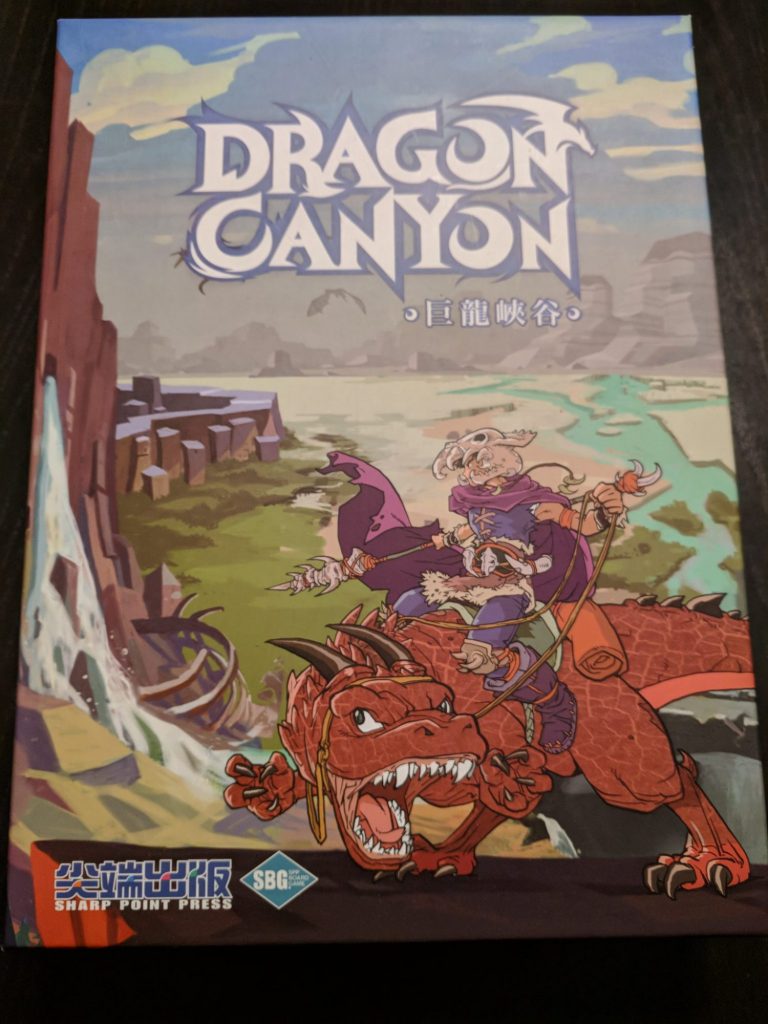
I’m not a huge fan of resource management games. Often you have to rely on a lucky dice roll, certain turn order, or the friendliness of your opponents (yeah, right…) to be successful. This can be frustrating for me and make the game seem tedious and not very exciting. Dragon Canyon adds a twist to collecting resources; instead of just bumping opponents off a map tile or paying more to own a production point, your warriors are used to collect resources or fight other facedown warriors. You can immediately flip your warriors face up using them to attack your opponents warriors, also resolving the text on the card, their “trick”, or leave them face down to collect wood, bone, food, or stone, and protect different places or cards on the map.
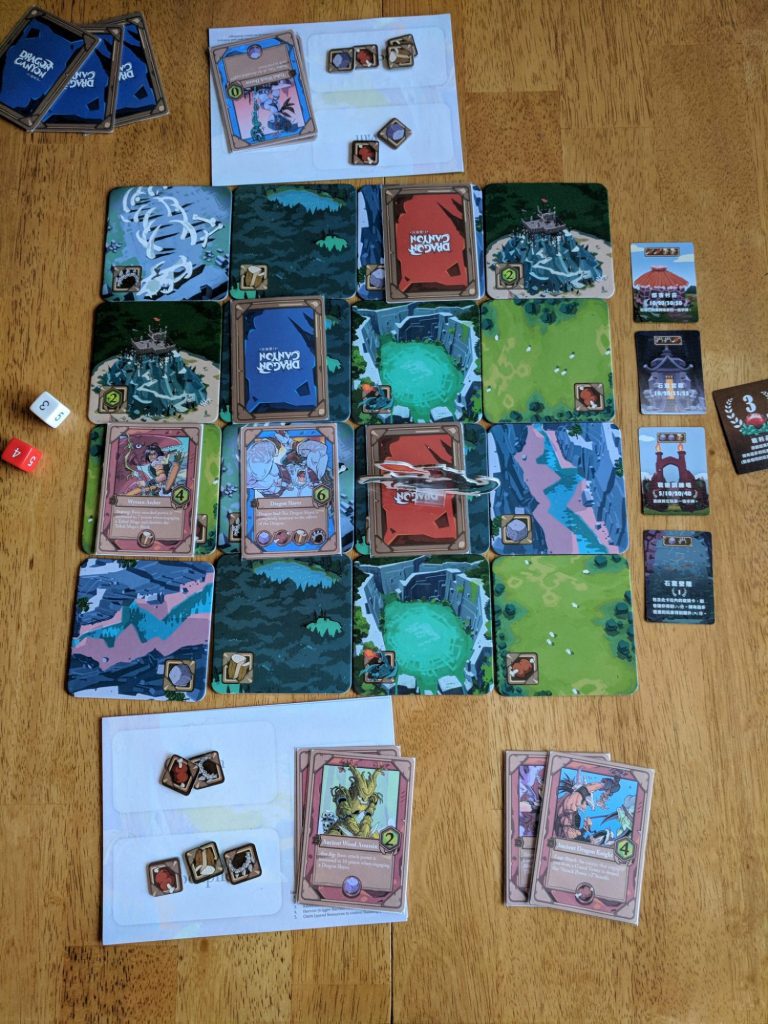
In Dragon Canyon you have to successfully manage your small tribe and your resources: wood, bone, food, and stone. This creates a very intricate dance between playing warriors as farmers, aggressors, or defenders. Players are able to set personal objectives during the game that they can define and refine throughout the game. For instance: do you want to fight your way to victory and steal resources from opponents? Knock ‘em dead. Do you want to try to get four warriors in a row to cause a “Harvest Festival”, allowing you to collect larger amounts of resources? Push your luck, you risk taker. Or would you rather slowly build your stockpile by safely playing facedown warriors? Go ahead, it’s your game!
The play area isn’t large so things can get pretty tight fairly quickly if you’re not careful. This makes for a quick game; easy to set up and play. The tiles are laid out randomly which improves the replayability. Your board is never going to look the same which will change your strategy and warrior placement every time.
Each warrior card has a power that goes into effect when flipped face up, but you can’t always be sure of what your opponent has in wait for you. There are only seven cards per tribe that you have in your hand and some are more powerful versus others. The interactions between the heroes is a unique mechanic. Some heroes can make other cards move, and some can gain bonuses depending where they’re placed. It’s a loose Rock, Paper, Scissors system but lets you put your cards on the map, giving you an edge over your opponents. Since you know all the cards your opponents have, because each player has the same seven cards, there’s a fair amount of bluffing which leads to a lot of fun player interaction. There’s also a giant dragon you can move if you place your warrior on the one of the two dragon tiles. The dragon stops the card underneath it from producing any resources or being activated in anyway.
When a stack or two of building cards, depending on the number of players, are all purchased all other players get one last turn. This makes Dragon Canyon a great 30-45 minute experience. Turns may drag a bit when learning the game because there’s a lot of planning, even with just seven warrior cards. But once people start amassing their resources the game will end quicker than you might expect.
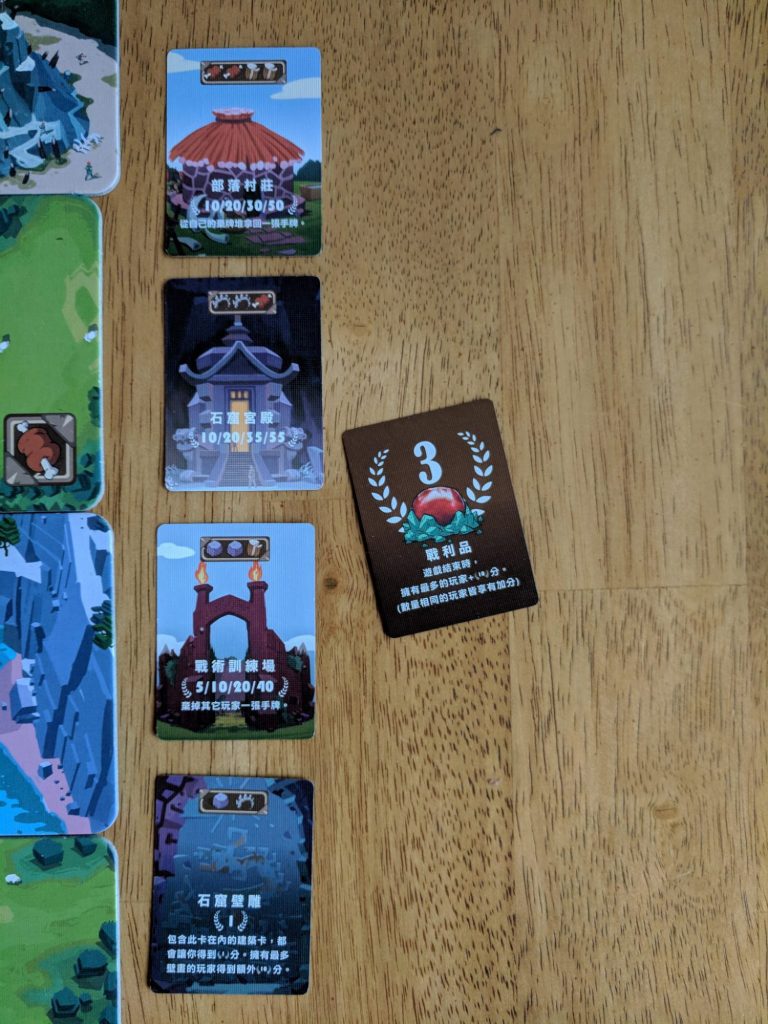
The art is bold and bright. It comes across as very anime; big awesome warriors, sharp lines, and suggested movement. The backgrounds on the map tiles are softer and don’t draw the eye directly to them which makes it obvious that the focus is on the cards. Out of the seven warriors four are men, one is a dog, and two are women. I hope that in the Kickstarter they’ll increase the diversity as they expand the tribes and that the art is a little less risque; focus more on the warriors as warriors and less as eye candy. Unfortunately the two female cards were dressed as you’d expect in an anime. I’d like to see stronger, better equipped (and clothed), female warriors.
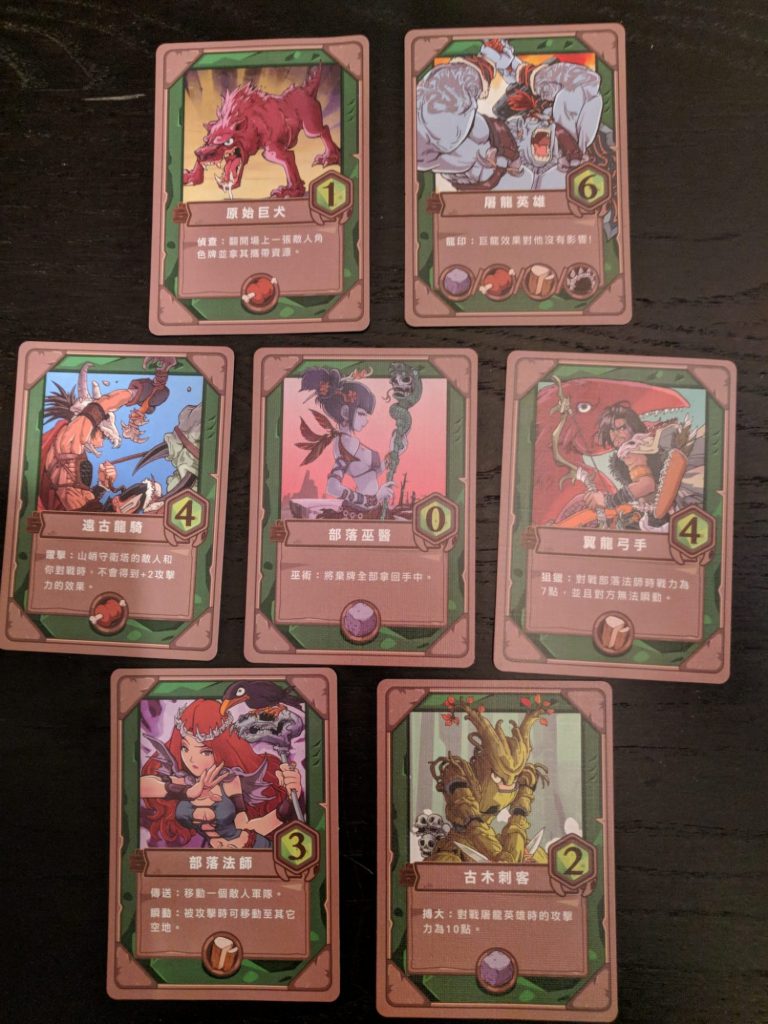
I enjoyed the game and look forward to playing it again, especially with expanded tribes. The unique battle aspect along with the resource collecting makes the game feel different than others I’ve played. The game is simple to teach but harder to grasp the nuances. There was some trouble fully understanding some portions of the game; it’s a Taiwanese game being translated to English by a German company. In a game like this, “rules as written” and timing of effects are key to winning, and clear and unambiguous language will end any arguments had at the table.
I’d expect to see a lot of play testing in Kickstarter. During our games, some players ran out of cards and were not able to continue to play. This situation was not addressed in the rules we received. Because of the intricacies of how cards affect one another, and the order in which they activate, proper translations are critical to the enjoyability of the game.
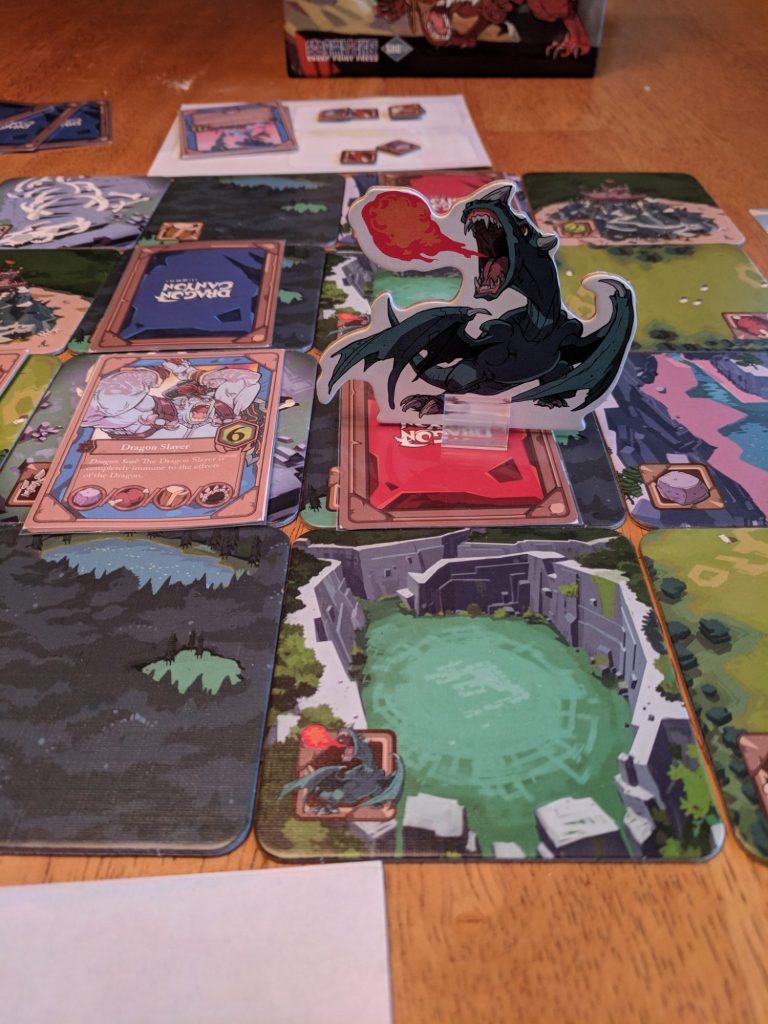
At first glance the mechanics may seem a bit underwhelming. Card placement and victory point based win condition are easy to pick up and learn. What makes a game like this stand out is the cards themselves that break those simple rules and really make you plan out your moves in advance. The problems you run into are from your opponents! Perhaps they can call your bluff, or the warrior they placed is stronger than yours. Taking a simple rule system and allowing the players to weaves their own strategies into the game make for a fun and interactive battle royal in the middle of Dragon Canyon.


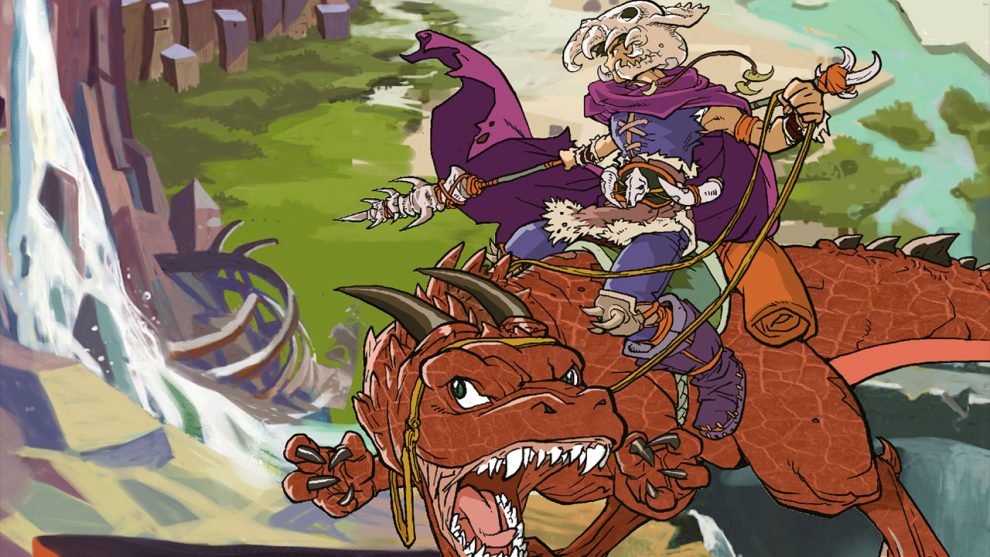
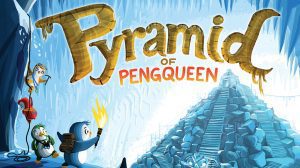
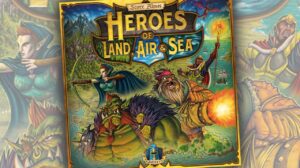
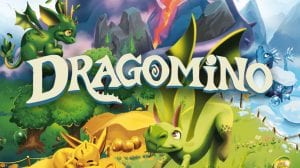
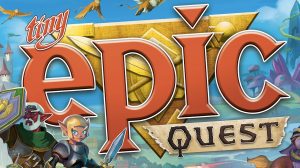




I had similar feelings about Dragon Canyon seeming like just another resource collecting game, but ended up really enjoying it.
Take a look at the 3 key concepts they list in the rules. If you are ever out of cards, you take your discard into your hand. Perhaps not the most logical place to have it in the rules, but hopefully that helps you.